Solution
Suspension
Emulsion
Lyophilized
Intravenous
Intramuscular
Subcutaneous
Intradermal
Oncology
Cardiovascular
Infectious Diseases
Hormonal Disorders
Vials
Ampoules
Pre-filled Syringes
Bags
North America
Europe
South America
Asia Pacific
Middle East and Africa
North America Outlook (USD Billion, 2019-2035)
North America Generic Injectables Market by Formulation Type
Solution
Suspension
Emulsion
Lyophilized
North America Generic Injectables Market by Route of Administration Type
Intravenous
Intramuscular
Subcutaneous
Intradermal
North America Generic Injectables Market by Therapeutic Area Type
Oncology
Cardiovascular
Infectious Diseases
Hormonal Disorders
North America Generic Injectables Market by Packaging Type
Vials
Ampoules
Pre-filled Syringes
Bags
North America Generic Injectables Market by Regional Type
US
Canada
US Outlook (USD Billion, 2019-2035)
US Generic Injectables Market by Formulation Type
Solution
Suspension
Emulsion
Lyophilized
US Generic Injectables Market by Route of Administration Type
Intravenous
Intramuscular
Subcutaneous
Intradermal
US Generic Injectables Market by Therapeutic Area Type
Oncology
Cardiovascular
Infectious Diseases
Hormonal Disorders
US Generic Injectables Market by Packaging Type
Vials
Ampoules
Pre-filled Syringes
Bags
CANADA Outlook (USD Billion, 2019-2035)
CANADA Generic Injectables Market by Formulation Type
Solution
Suspension
Emulsion
Lyophilized
CANADA Generic Injectables Market by Route of Administration Type
Intravenous
Intramuscular
Subcutaneous
Intradermal
CANADA Generic Injectables Market by Therapeutic Area Type
Oncology
Cardiovascular
Infectious Diseases
Hormonal Disorders
CANADA Generic Injectables Market by Packaging Type
Vials
Ampoules
Pre-filled Syringes
Bags
Europe Outlook (USD Billion, 2019-2035)
Europe Generic Injectables Market by Formulation Type
Solution
Suspension
Emulsion
Lyophilized
Europe Generic Injectables Market by Route of Administration Type
Intravenous
Intramuscular
Subcutaneous
Intradermal
Europe Generic Injectables Market by Therapeutic Area Type
Oncology
Cardiovascular
Infectious Diseases
Hormonal Disorders
Europe Generic Injectables Market by Packaging Type
Vials
Ampoules
Pre-filled Syringes
Bags
Europe Generic Injectables Market by Regional Type
Germany
UK
France
Russia
Italy
Spain
Rest of Europe
GERMANY Outlook (USD Billion, 2019-2035)
GERMANY Generic Injectables Market by Formulation Type
Solution
Suspension
Emulsion
Lyophilized
GERMANY Generic Injectables Market by Route of Administration Type
Intravenous
Intramuscular
Subcutaneous
Intradermal
GERMANY Generic Injectables Market by Therapeutic Area Type
Oncology
Cardiovascular
Infectious Diseases
Hormonal Disorders
GERMANY Generic Injectables Market by Packaging Type
Vials
Ampoules
Pre-filled Syringes
Bags
UK Outlook (USD Billion, 2019-2035)
UK Generic Injectables Market by Formulation Type
Solution
Suspension
Emulsion
Lyophilized
UK Generic Injectables Market by Route of Administration Type
Intravenous
Intramuscular
Subcutaneous
Intradermal
UK Generic Injectables Market by Therapeutic Area Type
Oncology
Cardiovascular
Infectious Diseases
Hormonal Disorders
UK Generic Injectables Market by Packaging Type
Vials
Ampoules
Pre-filled Syringes
Bags
FRANCE Outlook (USD Billion, 2019-2035)
FRANCE Generic Injectables Market by Formulation Type
Solution
Suspension
Emulsion
Lyophilized
FRANCE Generic Injectables Market by Route of Administration Type
Intravenous
Intramuscular
Subcutaneous
Intradermal
FRANCE Generic Injectables Market by Therapeutic Area Type
Oncology
Cardiovascular
Infectious Diseases
Hormonal Disorders
FRANCE Generic Injectables Market by Packaging Type
Vials
Ampoules
Pre-filled Syringes
Bags
RUSSIA Outlook (USD Billion, 2019-2035)
RUSSIA Generic Injectables Market by Formulation Type
Solution
Suspension
Emulsion
Lyophilized
RUSSIA Generic Injectables Market by Route of Administration Type
Intravenous
Intramuscular
Subcutaneous
Intradermal
RUSSIA Generic Injectables Market by Therapeutic Area Type
Oncology
Cardiovascular
Infectious Diseases
Hormonal Disorders
RUSSIA Generic Injectables Market by Packaging Type
Vials
Ampoules
Pre-filled Syringes
Bags
ITALY Outlook (USD Billion, 2019-2035)
ITALY Generic Injectables Market by Formulation Type
Solution
Suspension
Emulsion
Lyophilized
ITALY Generic Injectables Market by Route of Administration Type
Intravenous
Intramuscular
Subcutaneous
Intradermal
ITALY Generic Injectables Market by Therapeutic Area Type
Oncology
Cardiovascular
Infectious Diseases
Hormonal Disorders
ITALY Generic Injectables Market by Packaging Type
Vials
Ampoules
Pre-filled Syringes
Bags
SPAIN Outlook (USD Billion, 2019-2035)
SPAIN Generic Injectables Market by Formulation Type
Solution
Suspension
Emulsion
Lyophilized
SPAIN Generic Injectables Market by Route of Administration Type
Intravenous
Intramuscular
Subcutaneous
Intradermal
SPAIN Generic Injectables Market by Therapeutic Area Type
Oncology
Cardiovascular
Infectious Diseases
Hormonal Disorders
SPAIN Generic Injectables Market by Packaging Type
Vials
Ampoules
Pre-filled Syringes
Bags
REST OF EUROPE Outlook (USD Billion, 2019-2035)
REST OF EUROPE Generic Injectables Market by Formulation Type
Solution
Suspension
Emulsion
Lyophilized
REST OF EUROPE Generic Injectables Market by Route of Administration Type
Intravenous
Intramuscular
Subcutaneous
Intradermal
REST OF EUROPE Generic Injectables Market by Therapeutic Area Type
Oncology
Cardiovascular
Infectious Diseases
Hormonal Disorders
REST OF EUROPE Generic Injectables Market by Packaging Type
Vials
Ampoules
Pre-filled Syringes
Bags
APAC Outlook (USD Billion, 2019-2035)
APAC Generic Injectables Market by Formulation Type
Solution
Suspension
Emulsion
Lyophilized
APAC Generic Injectables Market by Route of Administration Type
Intravenous
Intramuscular
Subcutaneous
Intradermal
APAC Generic Injectables Market by Therapeutic Area Type
Oncology
Cardiovascular
Infectious Diseases
Hormonal Disorders
APAC Generic Injectables Market by Packaging Type
Vials
Ampoules
Pre-filled Syringes
Bags
APAC Generic Injectables Market by Regional Type
China
India
Japan
South Korea
Malaysia
Thailand
Indonesia
Rest of APAC
CHINA Outlook (USD Billion, 2019-2035)
CHINA Generic Injectables Market by Formulation Type
Solution
Suspension
Emulsion
Lyophilized
CHINA Generic Injectables Market by Route of Administration Type
Intravenous
Intramuscular
Subcutaneous
Intradermal
CHINA Generic Injectables Market by Therapeutic Area Type
Oncology
Cardiovascular
Infectious Diseases
Hormonal Disorders
CHINA Generic Injectables Market by Packaging Type
Vials
Ampoules
Pre-filled Syringes
Bags
INDIA Outlook (USD Billion, 2019-2035)
INDIA Generic Injectables Market by Formulation Type
Solution
Suspension
Emulsion
Lyophilized
INDIA Generic Injectables Market by Route of Administration Type
Intravenous
Intramuscular
Subcutaneous
Intradermal
INDIA Generic Injectables Market by Therapeutic Area Type
Oncology
Cardiovascular
Infectious Diseases
Hormonal Disorders
INDIA Generic Injectables Market by Packaging Type
Vials
Ampoules
Pre-filled Syringes
Bags
JAPAN Outlook (USD Billion, 2019-2035)
JAPAN Generic Injectables Market by Formulation Type
Solution
Suspension
Emulsion
Lyophilized
JAPAN Generic Injectables Market by Route of Administration Type
Intravenous
Intramuscular
Subcutaneous
Intradermal
JAPAN Generic Injectables Market by Therapeutic Area Type
Oncology
Cardiovascular
Infectious Diseases
Hormonal Disorders
JAPAN Generic Injectables Market by Packaging Type
Vials
Ampoules
Pre-filled Syringes
Bags
SOUTH KOREA Outlook (USD Billion, 2019-2035)
SOUTH KOREA Generic Injectables Market by Formulation Type
Solution
Suspension
Emulsion
Lyophilized
SOUTH KOREA Generic Injectables Market by Route of Administration Type
Intravenous
Intramuscular
Subcutaneous
Intradermal
SOUTH KOREA Generic Injectables Market by Therapeutic Area Type
Oncology
Cardiovascular
Infectious Diseases
Hormonal Disorders
SOUTH KOREA Generic Injectables Market by Packaging Type
Vials
Ampoules
Pre-filled Syringes
Bags
MALAYSIA Outlook (USD Billion, 2019-2035)
MALAYSIA Generic Injectables Market by Formulation Type
Solution
Suspension
Emulsion
Lyophilized
MALAYSIA Generic Injectables Market by Route of Administration Type
Intravenous
Intramuscular
Subcutaneous
Intradermal
MALAYSIA Generic Injectables Market by Therapeutic Area Type
Oncology
Cardiovascular
Infectious Diseases
Hormonal Disorders
MALAYSIA Generic Injectables Market by Packaging Type
Vials
Ampoules
Pre-filled Syringes
Bags
THAILAND Outlook (USD Billion, 2019-2035)
THAILAND Generic Injectables Market by Formulation Type
Solution
Suspension
Emulsion
Lyophilized
THAILAND Generic Injectables Market by Route of Administration Type
Intravenous
Intramuscular
Subcutaneous
Intradermal
THAILAND Generic Injectables Market by Therapeutic Area Type
Oncology
Cardiovascular
Infectious Diseases
Hormonal Disorders
THAILAND Generic Injectables Market by Packaging Type
Vials
Ampoules
Pre-filled Syringes
Bags
INDONESIA Outlook (USD Billion, 2019-2035)
INDONESIA Generic Injectables Market by Formulation Type
Solution
Suspension
Emulsion
Lyophilized
INDONESIA Generic Injectables Market by Route of Administration Type
Intravenous
Intramuscular
Subcutaneous
Intradermal
INDONESIA Generic Injectables Market by Therapeutic Area Type
Oncology
Cardiovascular
Infectious Diseases
Hormonal Disorders
INDONESIA Generic Injectables Market by Packaging Type
Vials
Ampoules
Pre-filled Syringes
Bags
REST OF APAC Outlook (USD Billion, 2019-2035)
REST OF APAC Generic Injectables Market by Formulation Type
Solution
Suspension
Emulsion
Lyophilized
REST OF APAC Generic Injectables Market by Route of Administration Type
Intravenous
Intramuscular
Subcutaneous
Intradermal
REST OF APAC Generic Injectables Market by Therapeutic Area Type
Oncology
Cardiovascular
Infectious Diseases
Hormonal Disorders
REST OF APAC Generic Injectables Market by Packaging Type
Vials
Ampoules
Pre-filled Syringes
Bags
South America Outlook (USD Billion, 2019-2035)
South America Generic Injectables Market by Formulation Type
Solution
Suspension
Emulsion
Lyophilized
South America Generic Injectables Market by Route of Administration Type
Intravenous
Intramuscular
Subcutaneous
Intradermal
South America Generic Injectables Market by Therapeutic Area Type
Oncology
Cardiovascular
Infectious Diseases
Hormonal Disorders
South America Generic Injectables Market by Packaging Type
Vials
Ampoules
Pre-filled Syringes
Bags
South America Generic Injectables Market by Regional Type
Brazil
Mexico
Argentina
Rest of South America
BRAZIL Outlook (USD Billion, 2019-2035)
BRAZIL Generic Injectables Market by Formulation Type
Solution
Suspension
Emulsion
Lyophilized
BRAZIL Generic Injectables Market by Route of Administration Type
Intravenous
Intramuscular
Subcutaneous
Intradermal
BRAZIL Generic Injectables Market by Therapeutic Area Type
Oncology
Cardiovascular
Infectious Diseases
Hormonal Disorders
BRAZIL Generic Injectables Market by Packaging Type
Vials
Ampoules
Pre-filled Syringes
Bags
MEXICO Outlook (USD Billion, 2019-2035)
MEXICO Generic Injectables Market by Formulation Type
Solution
Suspension
Emulsion
Lyophilized
MEXICO Generic Injectables Market by Route of Administration Type
Intravenous
Intramuscular
Subcutaneous
Intradermal
MEXICO Generic Injectables Market by Therapeutic Area Type
Oncology
Cardiovascular
Infectious Diseases
Hormonal Disorders
MEXICO Generic Injectables Market by Packaging Type
Vials
Ampoules
Pre-filled Syringes
Bags
ARGENTINA Outlook (USD Billion, 2019-2035)
ARGENTINA Generic Injectables Market by Formulation Type
Solution
Suspension
Emulsion
Lyophilized
ARGENTINA Generic Injectables Market by Route of Administration Type
Intravenous
Intramuscular
Subcutaneous
Intradermal
ARGENTINA Generic Injectables Market by Therapeutic Area Type
Oncology
Cardiovascular
Infectious Diseases
Hormonal Disorders
ARGENTINA Generic Injectables Market by Packaging Type
Vials
Ampoules
Pre-filled Syringes
Bags
REST OF SOUTH AMERICA Outlook (USD Billion, 2019-2035)
REST OF SOUTH AMERICA Generic Injectables Market by Formulation Type
Solution
Suspension
Emulsion
Lyophilized
REST OF SOUTH AMERICA Generic Injectables Market by Route of Administration Type
Intravenous
Intramuscular
Subcutaneous
Intradermal
REST OF SOUTH AMERICA Generic Injectables Market by Therapeutic Area Type
Oncology
Cardiovascular
Infectious Diseases
Hormonal Disorders
REST OF SOUTH AMERICA Generic Injectables Market by Packaging Type
Vials
Ampoules
Pre-filled Syringes
Bags
MEA Outlook (USD Billion, 2019-2035)
MEA Generic Injectables Market by Formulation Type
Solution
Suspension
Emulsion
Lyophilized
MEA Generic Injectables Market by Route of Administration Type
Intravenous
Intramuscular
Subcutaneous
Intradermal
MEA Generic Injectables Market by Therapeutic Area Type
Oncology
Cardiovascular
Infectious Diseases
Hormonal Disorders
MEA Generic Injectables Market by Packaging Type
Vials
Ampoules
Pre-filled Syringes
Bags
MEA Generic Injectables Market by Regional Type
GCC Countries
South Africa
Rest of MEA
GCC COUNTRIES Outlook (USD Billion, 2019-2035)
GCC COUNTRIES Generic Injectables Market by Formulation Type
Solution
Suspension
Emulsion
Lyophilized
GCC COUNTRIES Generic Injectables Market by Route of Administration Type
Intravenous
Intramuscular
Subcutaneous
Intradermal
GCC COUNTRIES Generic Injectables Market by Therapeutic Area Type
Oncology
Cardiovascular
Infectious Diseases
Hormonal Disorders
GCC COUNTRIES Generic Injectables Market by Packaging Type
Vials
Ampoules
Pre-filled Syringes
Bags
SOUTH AFRICA Outlook (USD Billion, 2019-2035)
SOUTH AFRICA Generic Injectables Market by Formulation Type
Solution
Suspension
Emulsion
Lyophilized
SOUTH AFRICA Generic Injectables Market by Route of Administration Type
Intravenous
Intramuscular
Subcutaneous
Intradermal
SOUTH AFRICA Generic Injectables Market by Therapeutic Area Type
Oncology
Cardiovascular
Infectious Diseases
Hormonal Disorders
SOUTH AFRICA Generic Injectables Market by Packaging Type
Vials
Ampoules
Pre-filled Syringes
Bags
REST OF MEA Outlook (USD Billion, 2019-2035)
REST OF MEA Generic Injectables Market by Formulation Type
Solution
Suspension
Emulsion
Lyophilized
REST OF MEA Generic Injectables Market by Route of Administration Type
Intravenous
Intramuscular
Subcutaneous
Intradermal
REST OF MEA Generic Injectables Market by Therapeutic Area Type
Oncology
Cardiovascular
Infectious Diseases
Hormonal Disorders
REST OF MEA Generic Injectables Market by Packaging Type
Vials
Ampoules
Pre-filled Syringes
Bags


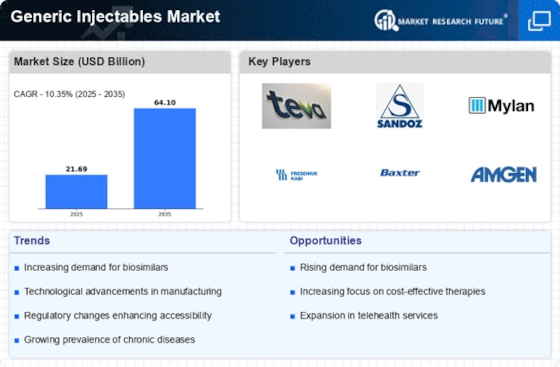
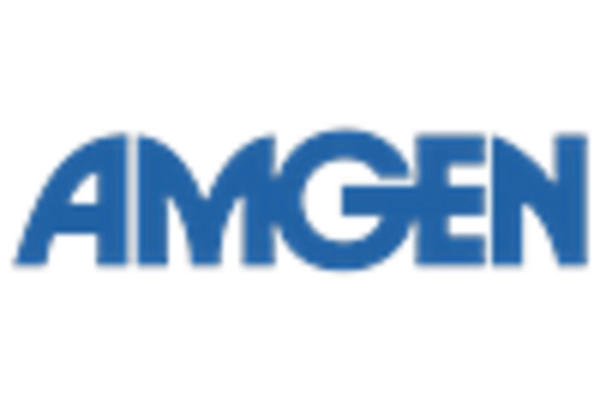
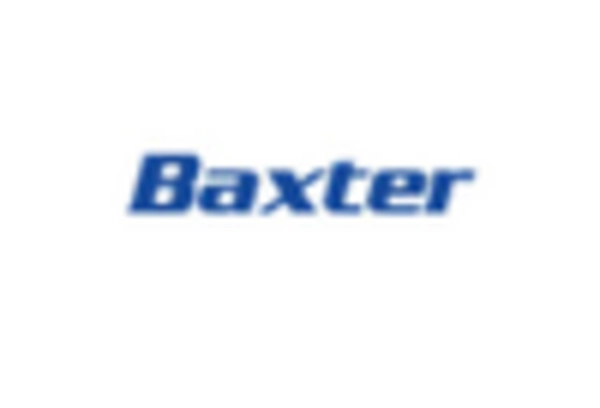
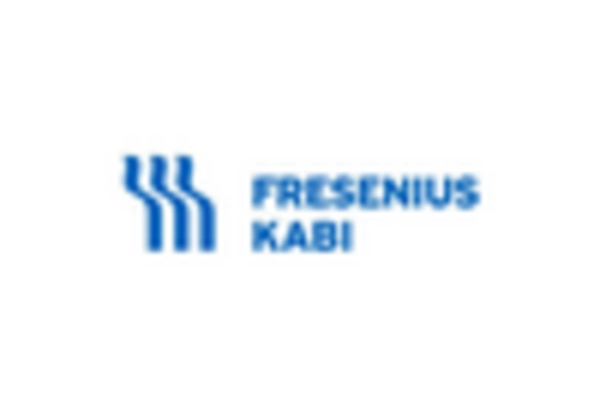
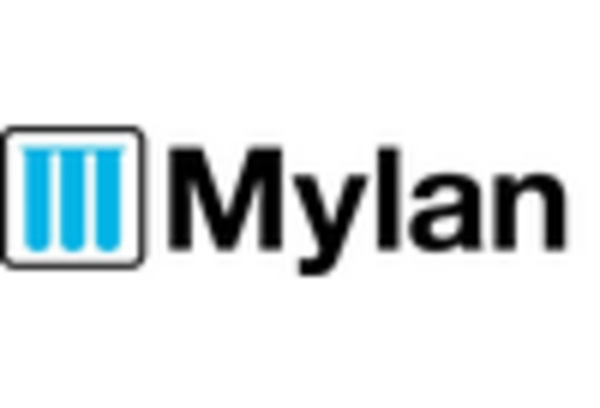
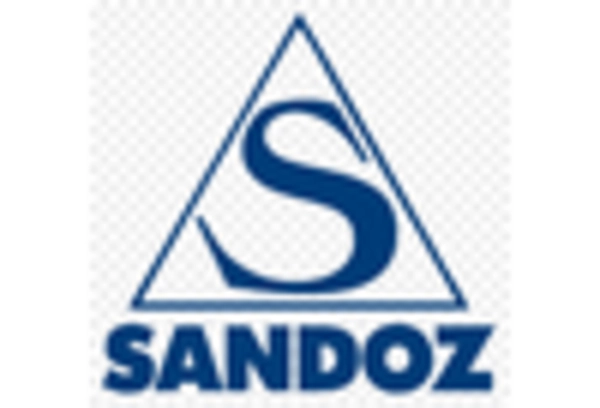
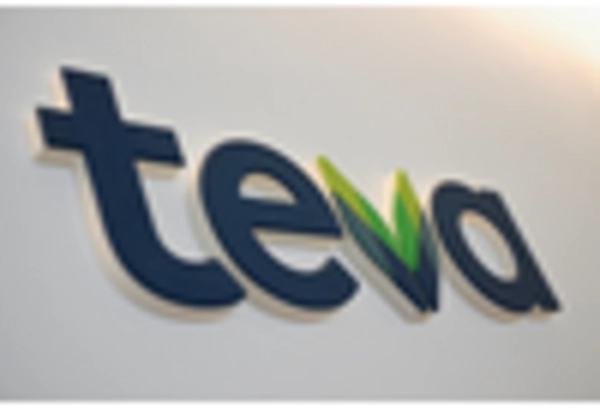









Leave a Comment